Pibliotheque workshop at Varia, Rotterdam
Two days workshop at Varia (Gouwstraat 3, Rotterdam)
those.tools is a software development and design studio for research, editorial and publishing practices in the arts and social sciences. We develop free and open source tools for writing, archiving, mapping, designing and publishing research.
We activate and adapt each tool to the context of every project we collaborate on. Wether for self-initiated projects or commissioned work, our aim is to explore new ways of doing things, recognizing the epistemological function of tools with a strong focus on collective creative processes.
These processes can produce a variety of objects: books, web platforms, sound installations… They may also, we hope, produce new ideas, new perspectives, new relations.
Open to collaborations, those.tools welcomes fellow designers, developpers, artists with an interest in these topics.
Chemins a data archiving and mapping tool. Built on top of the Processwire CMS, it enables one or more users to build up a database of documents, specifying object typologies and relationships, while graphically visualizing these documents within a map. The resulting database can be used to produce a website, with each node and link in the graph constituting a web page.
Marginalia a writing tool for creating relationships between several columns of text. It can be used to write linear text containing calls for notes, as well as multi-voice dialogues. It includes an export module for designing a printed publication from the encoded content.
Pibliotheque a files sharing system between computers connected to a local network, designed for collective practices of documents sharing and dissemination.
Two days workshop at Varia (Gouwstraat 3, Rotterdam)
Website and publishing platform for the Commodity Frontiers initiative.
Design and development of the website bna-bbot.be/soundmap.
Database architecture for the a/r initiative
First waves of Maghrebi and Black struggles in Brussels, and beyond.
A website for the research project Simba Mbili by Sam Hopkins and Marian Nur Goni.
Map of the connections between the individual research projects in the context of the exhibition "Branching Streams. Sketches of Kinship" by the international research team Reconnecting 'objects' (reconnecting.art) at Théodore Monod African Art Museum, Dakar. The map was designed and hand drawn by Ayoh Kré Duchâtelet and Lionel Maes.
The project ‘re-connecting “objects”: epistemic plurality and transformative practices in and beyond museums’ is a project involving three African universities, two European universities and two museums (the Théodore Monod Museum of African Art in Dakar and the Pitt Rivers Museum in Oxford). The project, structured around five post-doctoral research projects for the partner universities, ran from 2022 to 2025 and gave rise to several meetings, including an exhibition in Dakar, at the Théodore Monod Museum, in May 2024.
From the outset of the project, La Villa Hermosa (Ayoh kré Duchâtelet and Lionel Maes) has been involved in the design of research tools; online dialogue space for researchers, document sharing, websites, etc. and graphic supports; visual identity, communication media, exhibition signage.
For the exhibition at the Musée Théodore Monod in Dakar, La Villa Hermosa also designed, in collaboration with Isabelle Kany Ndiaye Sarr, a media library space, Mbokk.
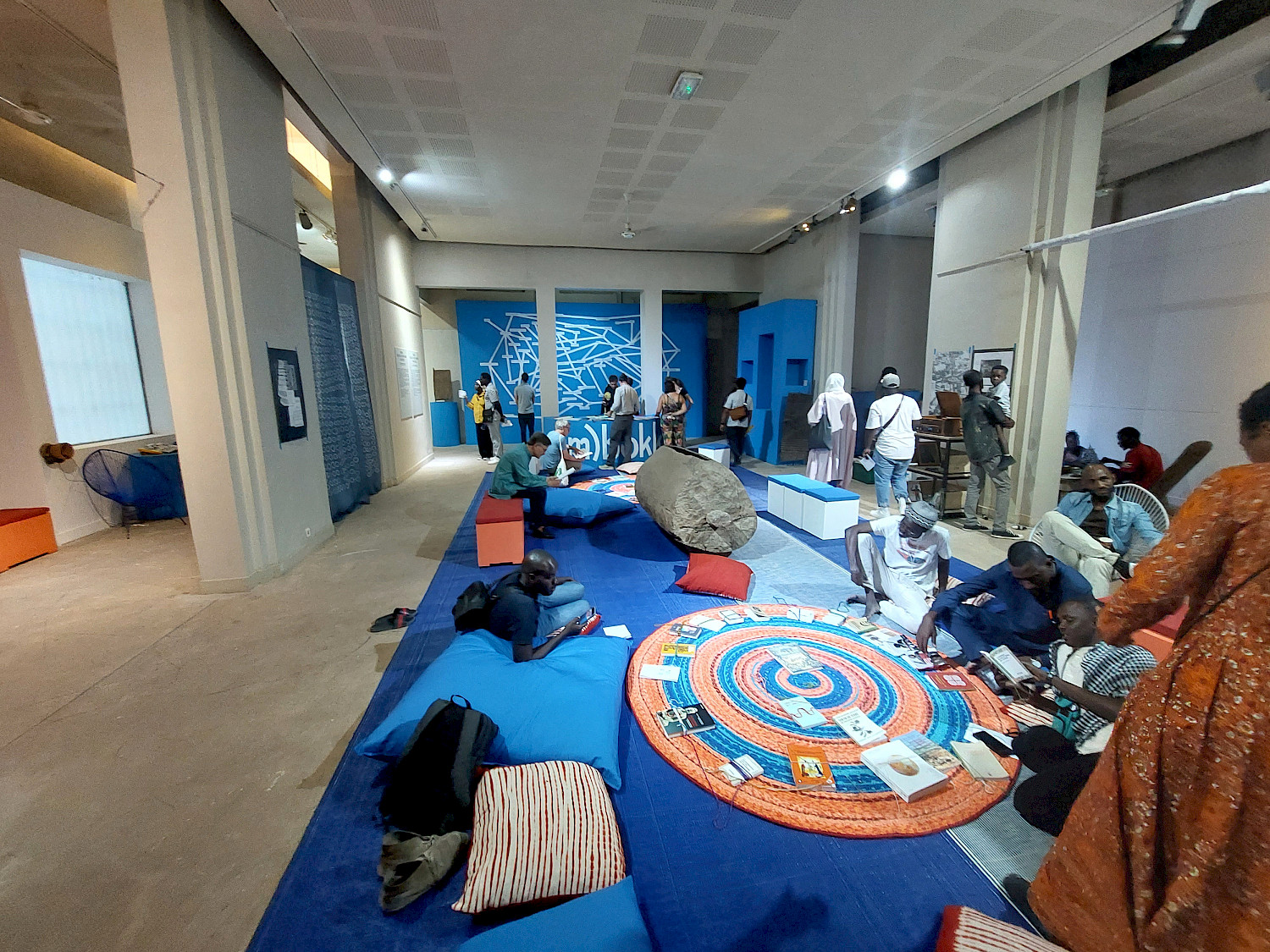
Within this space, common to all the research projects, we drew a map of the relationships between the terms specific to each research project, highlighting the thematic crossovers between projects.
The map was designed with Chemins in collaboration with the project researchers. The axes were then cut out on vinyl and the labels were hand-typed during the exhibition set-up.
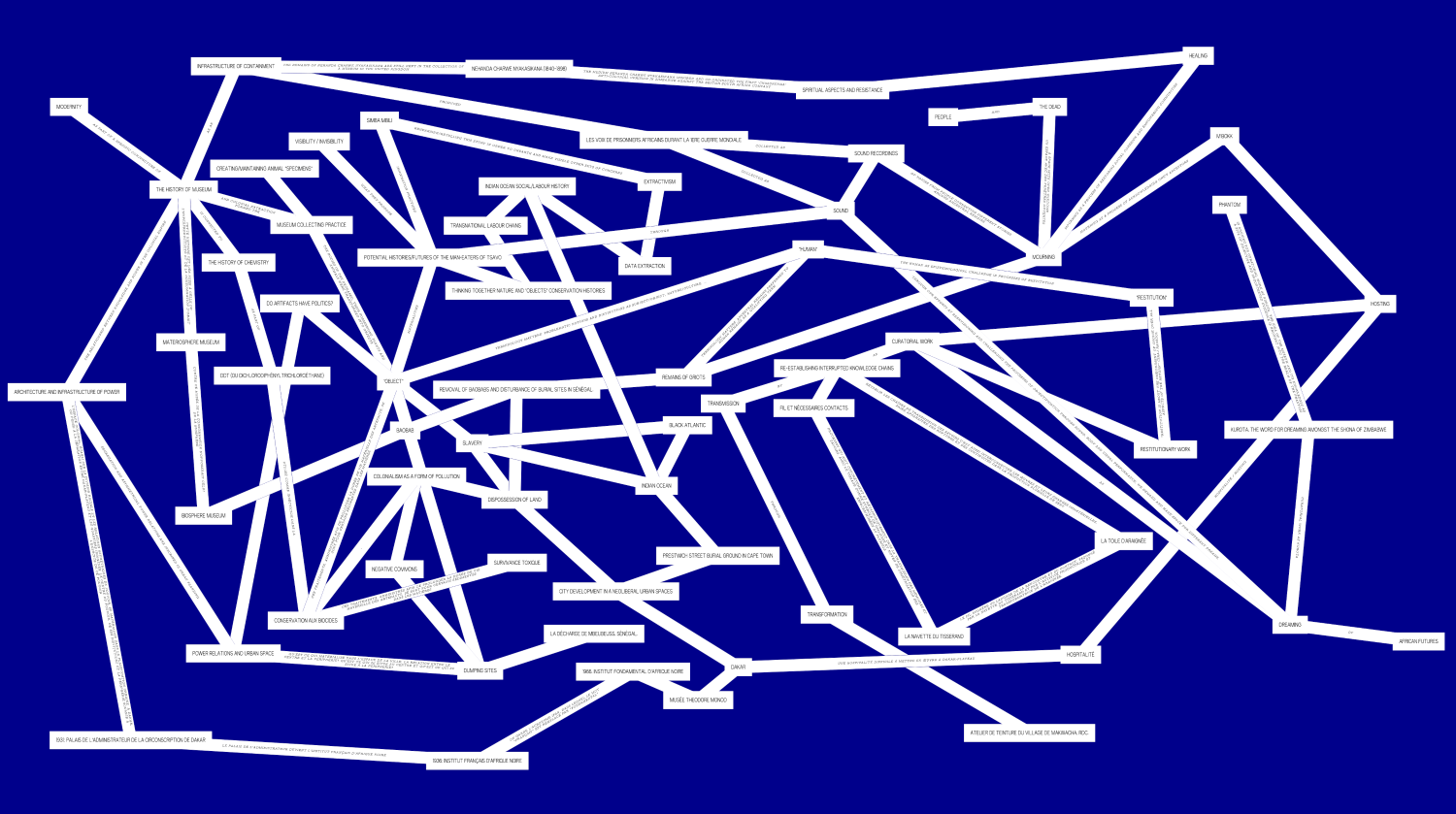
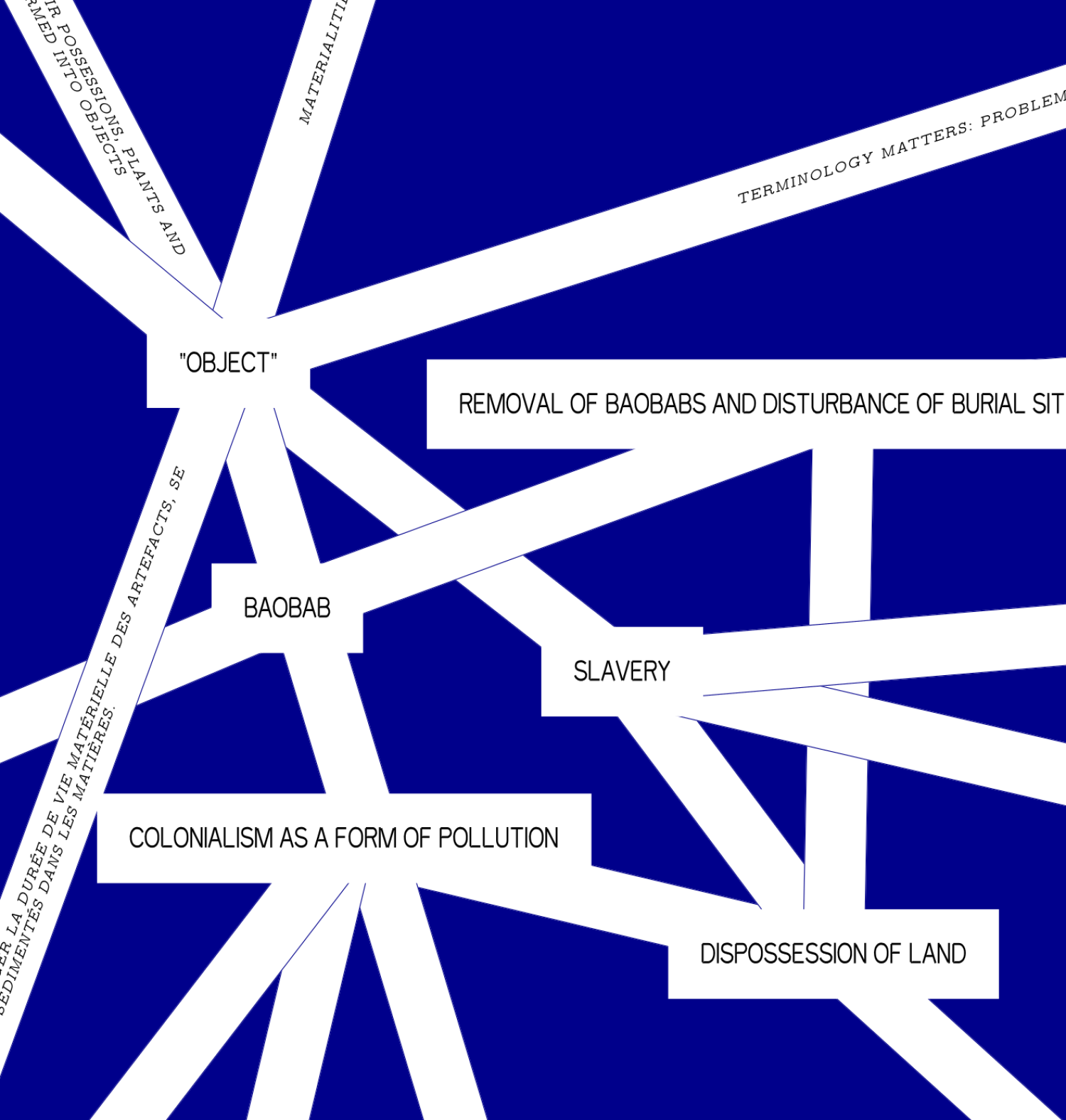
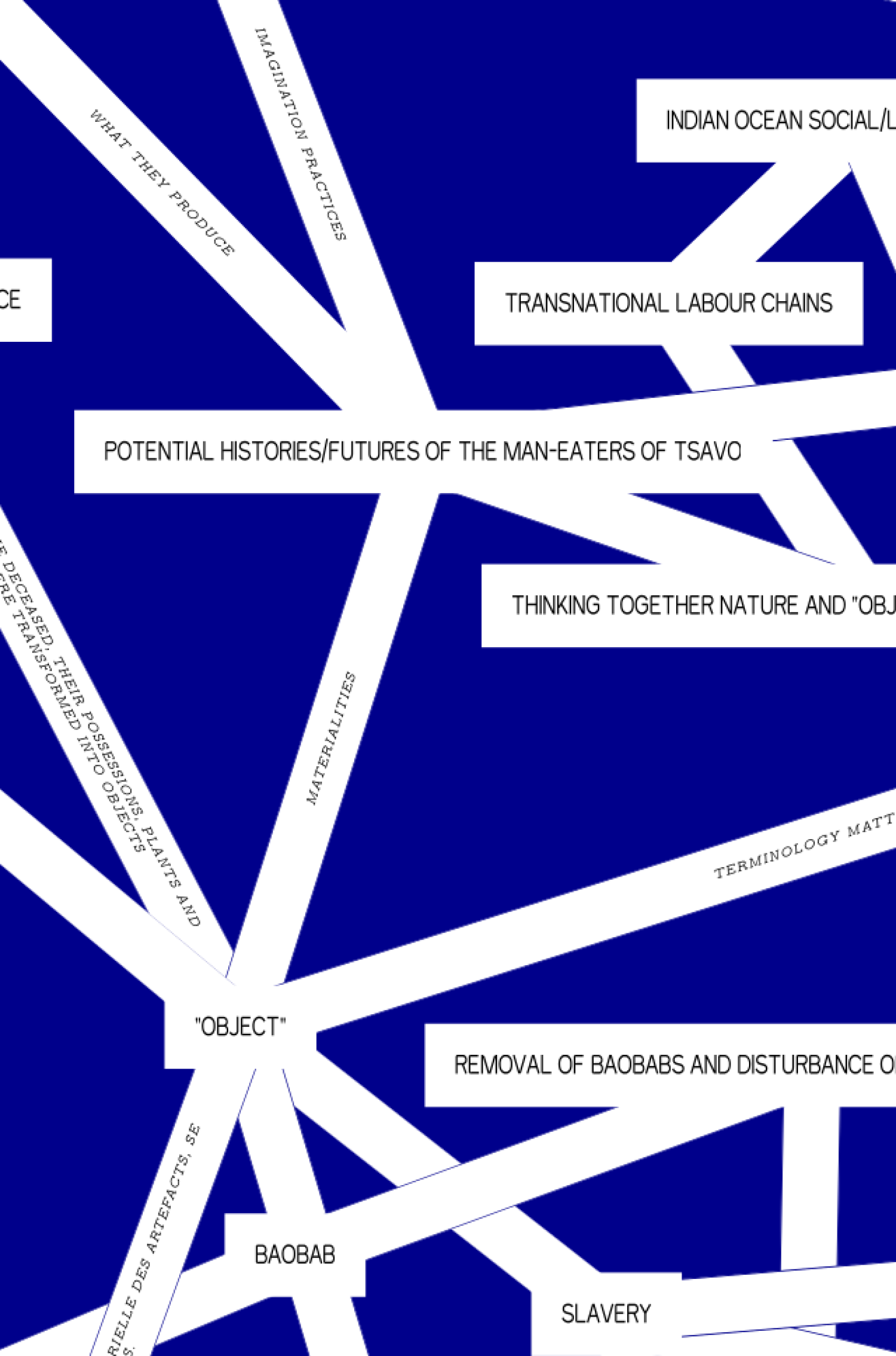
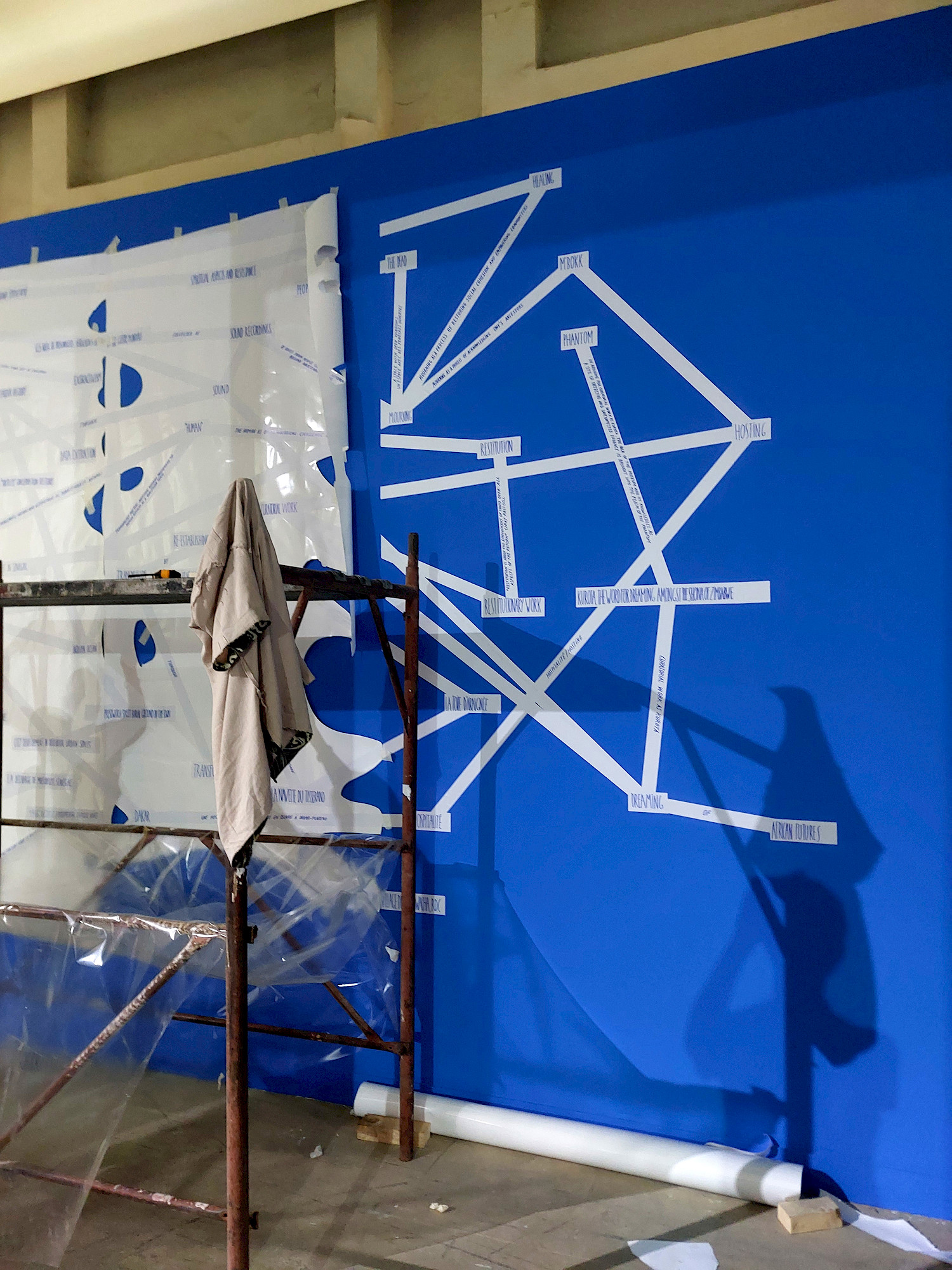
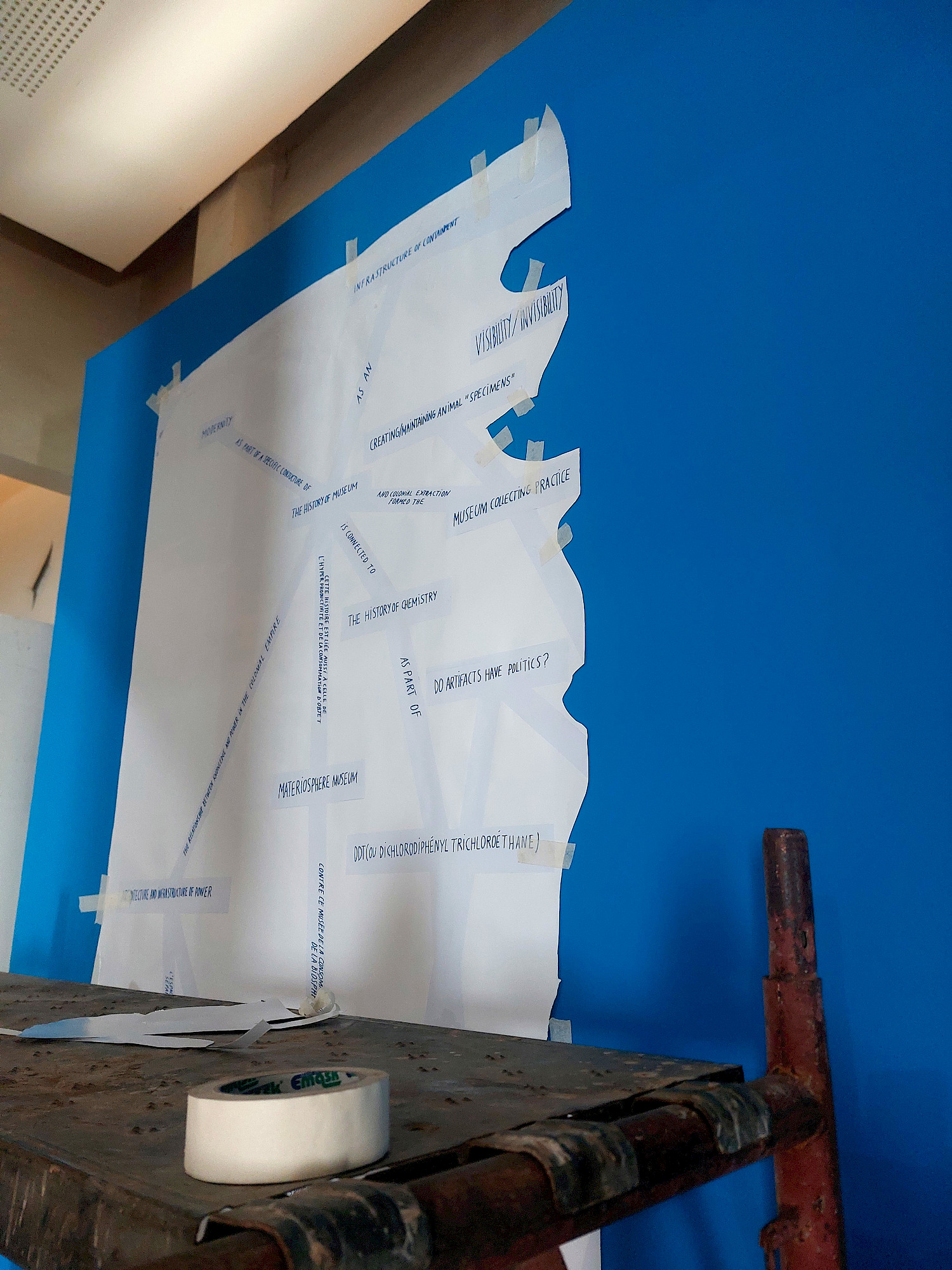
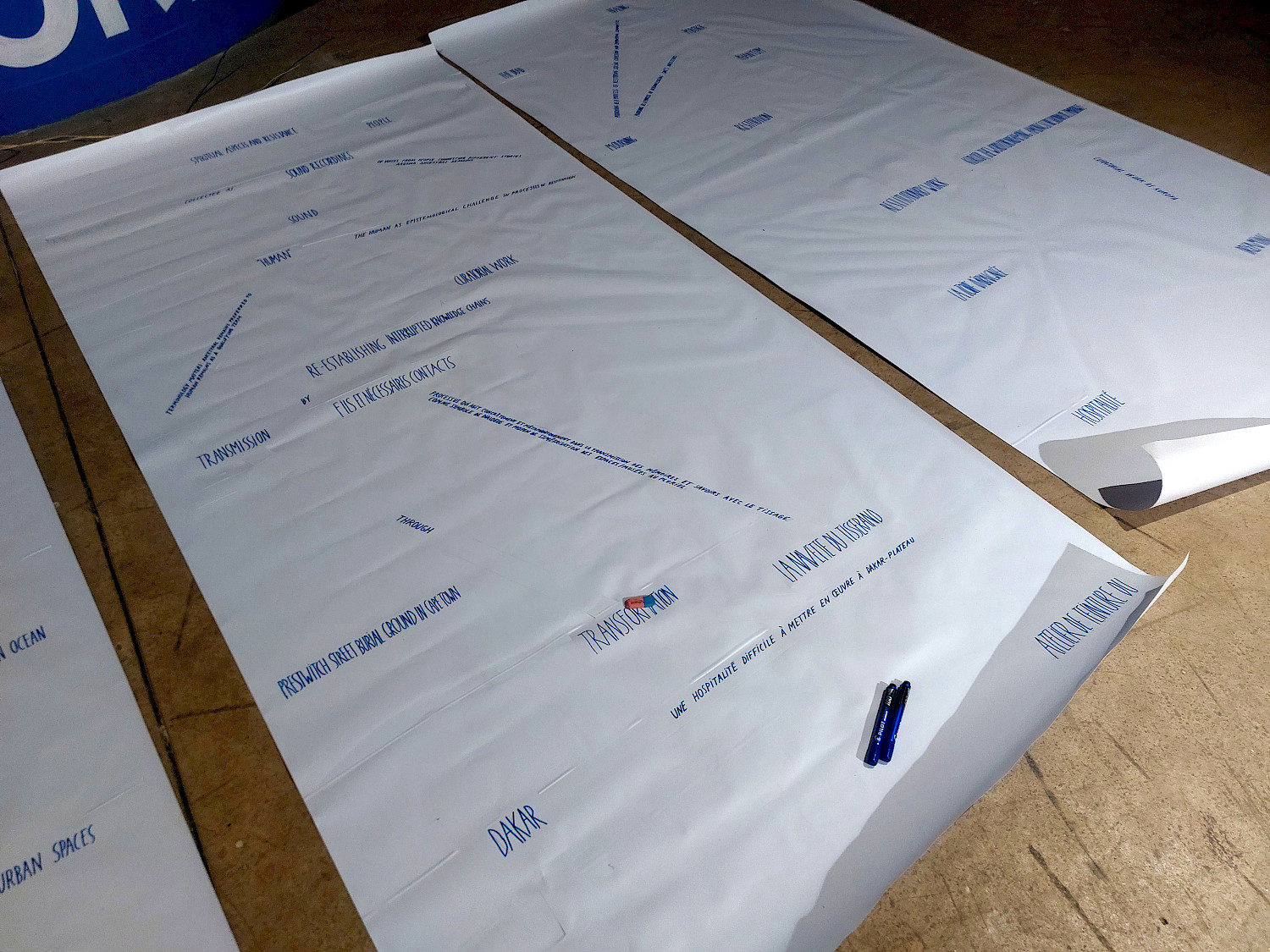
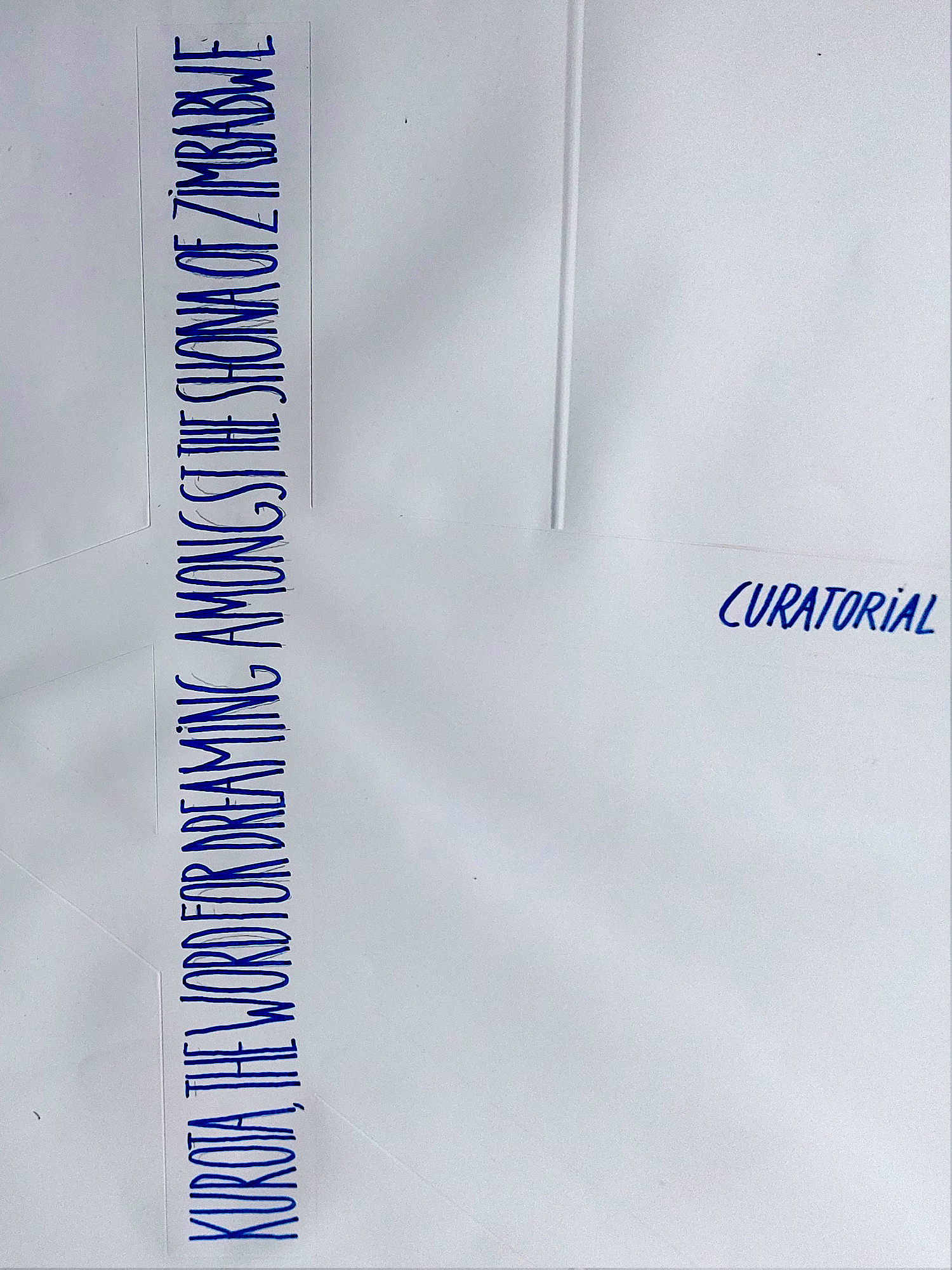
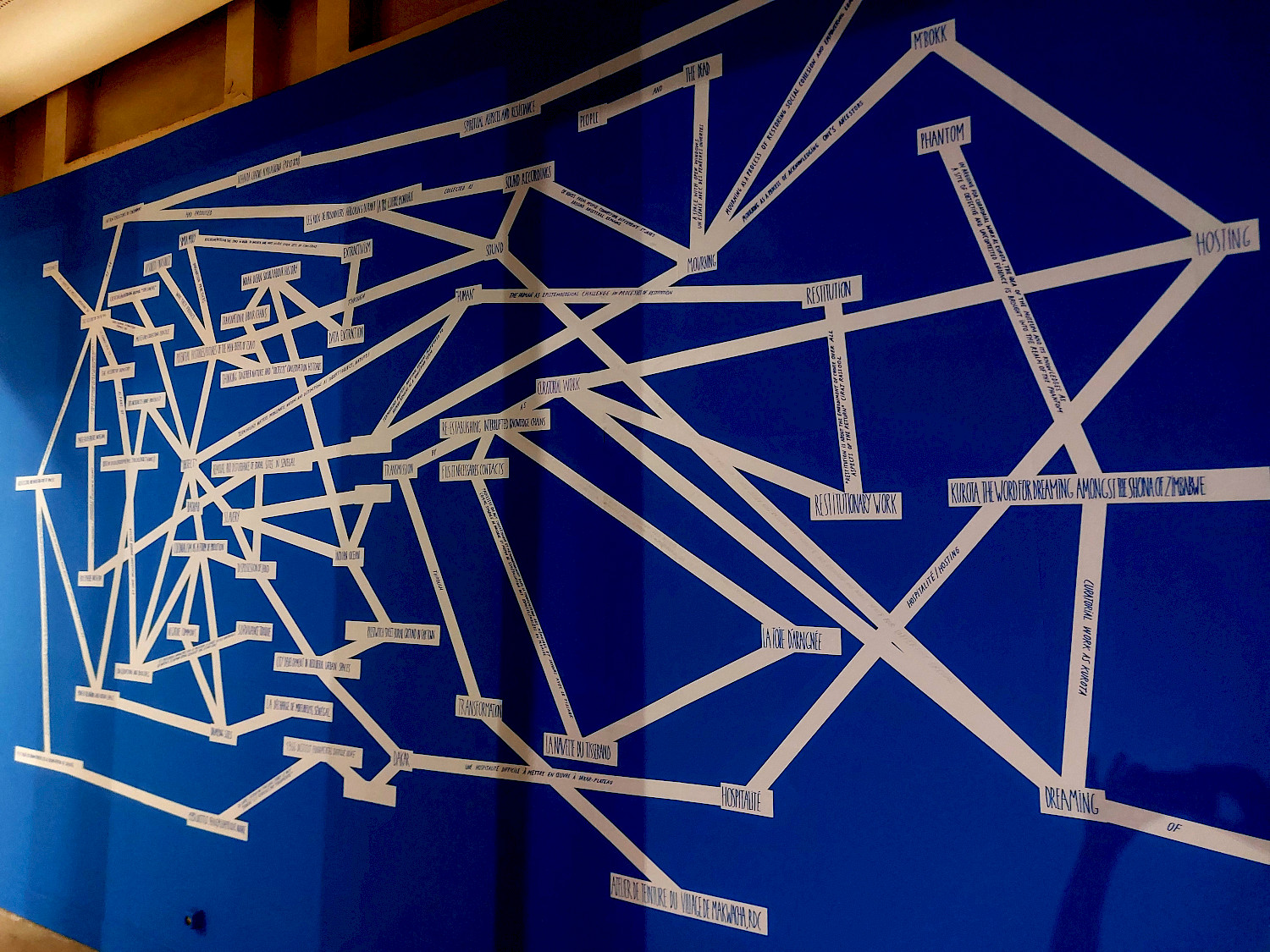
Introduction to the writing tool Marginalia in the context of the "Networked Practice" seminar organized by Sam Hopkins at the Academy of Media Arts in Cologne.
A database for the archival practice of Peliskan, an association dedicated to the rescuing of Super 8 Films, notably in connection with the "festival Super 8" in Belgium